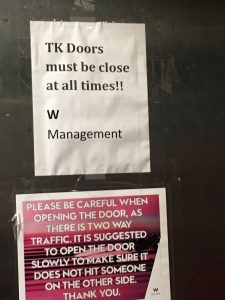English is a crazy language! I often remind myself that I’m fortunate to have grown up with what has become the international language of commerce, art, and everything else. English has become the default over French (the original lingua Franca) in situations from diplomacy to Internet shopping. It’s everyone’s second language—if it’s not the first.
I’m acutely aware of the advantage of having English as a first language. This is especially poignant, as my foreign language skills are dreadful! If I can’t become competent in Spanish, German, Italian or Dutch, let me, at least, become helpful to others learning English.
On a professional level, I’ve spent a great deal of time translating the improvisational English of my friends and clients from Argentina, Germany and the Netherlands into standard American style English for business communications. And, for the last couple of years, I’ve volunteered at the English in Action program at the Union of English Speakers, helping immigrants to the U.S. work on their conversational skills.
My first conversation partner/student was an engineer from St. Petersburg, Russia. We discovered common interests in cooking and true crime, spending our weekly sessions pouring over magazine articles and exchanging holiday recipes. My second partner/student is from Spain. He’s interested in politics and economics, but right now we’re working on smoothing out the edges of his English pronunciation. Poetry has become a great tool for this specific task.
The vagaries of Henrique’s English have made me more aware of the eccentricities of my language. I’ve taken to photographing common, or amusing, English language signs that reveal an English as a second language misuse of a common phrase. The first time I photographed this particular mistake, it was on the door of a Thai take-out place near the Union of English Speakers. The second was the English language sign on the window of a very classy hotel in Madrid. And the third is on the personnel only entrance to a friend’s place of employment.
What’s the problematic English language confusion? It’s simple. It’s CLOSE and CLOSED. Over and over again, I’ve found signs that should use the word “closed” (as in a closed door, window, or business establishment) replaced with CLOSE. To an English speaker, close means nearby. To the second language speaker it’s naturally mistaken for the opposite of open—closed—and it’s easy to understand their confusion.
The Thai restaurant’s sign made me giggle. “We will be close until 5pm.” I told Henrique that it was funny because it sounded like the restaurant was hugging me until 5pm, when the store would reopen and our relationship would end. It took him a while to digest that.
English is confusing, crazy, and confounding. I’m so lucky that I started with it!






I once had a ninth-grade native Spanish speaker hand in a paper where she wrote about her family. She got the Spanish year a bit mixed up with English, and kept talking about how many anuses various members of her family were. I died laughing as I read it.
I may share that with Henrique!
Serendipity! Or pure coincidence, but one of the people I teach on a Wednesday is a native English speaker who is very…meticulous…about meaning. Yesterday we were teaching the class how to cut/copy/paste and the text they were using included ‘one mouse, two yaks, three sheep….’ etc
My student’s problem was that his mind went into freefall every time he heard the word ‘mouse’ as he could not tell if it was the input device held in the hand or the rodent of the text!
Despite the fact that English has an enormous vocabulary, English speakers delight in repurposing words! Very confusing. I’d hate to have to learn English as an adult too.
Yes! Being “born” into English removes a huge menu of problems from the table. Between pronunciation conundra (the odd plural of conundrum) and double/re-purposed words, English is one puzzle after another.